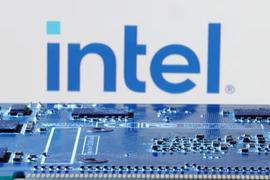Intel postpones the start of its German factory until 2029, with a subsidy of 10 billion euros, or revokes it
It took the German government some time to raise 10 billion euros for Intel's Fab 29 near Magdeburg. However, according to reports, since the company has decided to postpone the project launch until 2029-2030, this funding may be returned to the federal budget.
Intel's project near Magdeburg was originally expected to receive strong government support of 10 billion euros from the Climate and Transition Fund, with the first phase of 3.96 billion euros to be used in 2024. However, Intel postponed construction due to financial reasons and gradually stopped its contract manufacturing business, and these funds were put on hold.
This delay jeopardizes Germany's ambitions in the semiconductor field and raises political questions about the use of the 10 billion euros in government subsidies initially promised to support Intel's investment. Finance Minister Christian Lindner advocates for a redistribution of funds, believing it to be a prudent fiscal response to current economic pressures. On the other hand, Economic Affairs Minister Robert Habeck has resisted this change because his department is responsible for regulating the fund and intends to use it to support economic growth and climate initiatives.
Intel's delay has brought uncertainty to the future of the project, raising questions about whether the project will proceed as planned or whether new terms need to be negotiated. Alexander Schiersch from the German Institute for Economic Research (DIW) stated earlier this year that given Intel's current financial difficulties, the likelihood of subsidy funds returning to the Magdeburg project does not exceed 50%.
If Intel decides to continue pushing forward, the government may need to renegotiate subsidy details from scratch. If Intel cancels the project, then how to use the land originally planned for the factory becomes a problem. This location is tailor-made for this specific facility and may be difficult to quickly or effectively repurpose, potentially causing setbacks to regional development plans.
Given the global economic environment, both Intel and the German government may find it increasingly difficult to obtain the necessary funding and advance chip factory projects in the coming years. Therefore, it remains to be seen whether Intel can return to the Fab 29 project as planned between 2029 and 2030.
This delay jeopardizes Germany's ambitions in the semiconductor field and raises political questions about the use of the 10 billion euros in government subsidies initially promised to support Intel's investment. Finance Minister Christian Lindner advocates for a redistribution of funds, believing it to be a prudent fiscal response to current economic pressures. On the other hand, Economic Affairs Minister Robert Habeck has resisted this change because his department is responsible for regulating the fund and intends to use it to support economic growth and climate initiatives.
Intel's delay has brought uncertainty to the future of the project, raising questions about whether the project will proceed as planned or whether new terms need to be negotiated. Alexander Schiersch from the German Institute for Economic Research (DIW) stated earlier this year that given Intel's current financial difficulties, the likelihood of subsidy funds returning to the Magdeburg project does not exceed 50%.
If Intel decides to continue pushing forward, the government may need to renegotiate subsidy details from scratch. If Intel cancels the project, then how to use the land originally planned for the factory becomes a problem. This location is tailor-made for this specific facility and may be difficult to quickly or effectively repurpose, potentially causing setbacks to regional development plans.
Given the global economic environment, both Intel and the German government may find it increasingly difficult to obtain the necessary funding and advance chip factory projects in the coming years. Therefore, it remains to be seen whether Intel can return to the Fab 29 project as planned between 2029 and 2030.